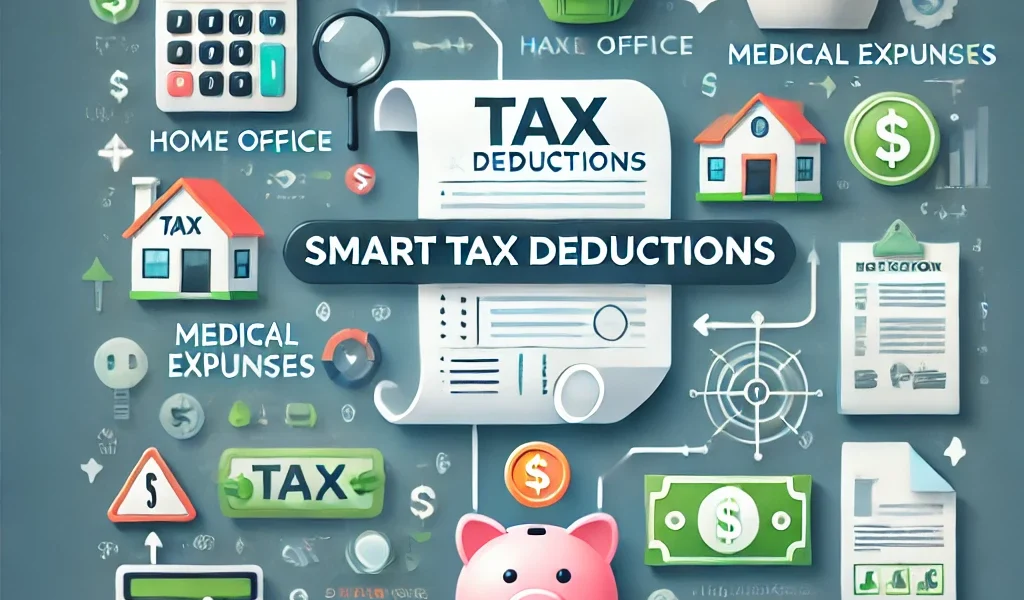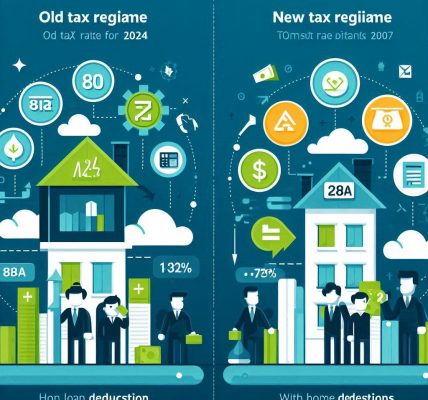Introduction
Tax deductions can significantly reduce your taxable income, helping you save money legally. While many people are aware of common deductions like mortgage interest and student loan interest, there are several lesser-known tax deductions that can maximize your savings. This DIY guide will walk you through some of the smartest tax deductions, ensuring compliance with tax laws while optimizing your returns.
Understanding Tax Deductions
A tax deduction reduces the amount of income subject to tax, lowering your overall tax liability. Unlike tax credits, which directly reduce the tax you owe, deductions reduce taxable income and, therefore, lower your tax bracket.
1. Home Office Deduction (For Self-Employed Individuals)
If you work from home and use a specific area exclusively for business, you may be eligible for a home office deduction.
What Can Be Deducted?
- A portion of your rent or mortgage
- Utilities like electricity and internet
- Office supplies and furniture
Important: The space must be used exclusively for business to qualify.
2. Medical and Dental Expenses
Medical expenses can be deducted if they exceed a certain percentage of your adjusted gross income (AGI).
Eligible Expenses Include:
- Doctor visits and hospital stays
- Prescription medications
- Medical equipment (e.g., wheelchairs, hearing aids)
- Long-term care insurance premiums
Note: Only the amount exceeding 7.5% of your AGI is deductible.
3. State Sales Tax Deduction
If you live in a state with no income tax, you may opt to deduct state sales taxes instead.
How It Works:
- Use IRS sales tax tables or keep receipts of large purchases (e.g., vehicles, appliances).
- Claim either state income tax or state sales tax, whichever is higher.
4. Student Loan Interest Deduction
Even if someone else (e.g., a parent) is making payments on your student loan, you may still qualify for the deduction of up to $2,500 per year.
Eligibility:
- You must be legally responsible for the loan.
- Your income must be within IRS limits.
5. Educator Expenses Deduction
Teachers and educators can deduct up to $300 annually for out-of-pocket classroom expenses like books, supplies, and technology.
6. Charitable Contributions (Including Non-Cash Donations)
Most people know that donating cash to a charity is tax-deductible, but non-cash donations (e.g., clothes, furniture, electronics) can also be deducted.
Rules to Follow:
- The organization must be IRS-approved (501(c)(3)).
- Donations worth over $500 require Form 8283.
- Keep receipts or acknowledgment letters from the charity.
7. Job Search Expenses (In Some Cases)
If you’re looking for a job in the same industry, some job-hunting costs may be deductible.
Qualifying Expenses:
- Resume preparation
- Travel expenses for job interviews
- Career counseling fees
Note: First-time job seekers and those switching industries don’t qualify.
8. Self-Employed Health Insurance Deduction
If you are self-employed, you can deduct 100% of health insurance premiums for yourself and your family.
Key Conditions:
- You must not be eligible for employer-sponsored health coverage.
- The deduction is taken above-the-line, reducing AGI.
9. Retirement Contributions (IRA & 401(k) Deductions)
Contributions to retirement accounts can lower taxable income:
- Traditional IRA: Contributions may be deductible depending on income level.
- 401(k): Contributions reduce taxable wages (up to $23,000 in 2024 for those under 50).
- SEP IRA/Solo 401(k): Great for self-employed individuals.
10. Dependent Care Credit vs. Dependent Care FSA
Parents can save money through either:
- Dependent Care Credit (tax credit for child care expenses)
- Dependent Care Flexible Spending Account (FSA) (pre-tax dollars for childcare expenses)
11. Energy-Efficient Home Improvements
Upgrades like solar panels, energy-efficient windows, and insulation may qualify for tax credits rather than deductions.
12. Business Travel Expenses
For self-employed individuals, business-related travel expenses (transportation, lodging, meals) can be deducted if they are necessary and reasonable.
13. Moving Expenses for Military Members
Active-duty military personnel moving due to orders can deduct moving expenses, including transportation and storage.
14. Jury Duty Pay Given to Employer
If you received jury duty pay but had to give it to your employer, you can deduct that amount from your taxable income.
15. Mortgage Points Deduction
If you paid points to lower the interest rate on your mortgage, you may be eligible to deduct those points in the year of purchase.
Conclusion
Taking advantage of these lesser-known tax deductions can significantly reduce your taxable income while staying compliant with tax laws. Keep detailed records and consult a tax professional if needed to ensure you maximize your deductions without any legal issues.
Call to Action
Are you ready to save more on taxes? Start reviewing your expenses and see which deductions apply to you! If in doubt, consult a tax advisor for expert guidance.




